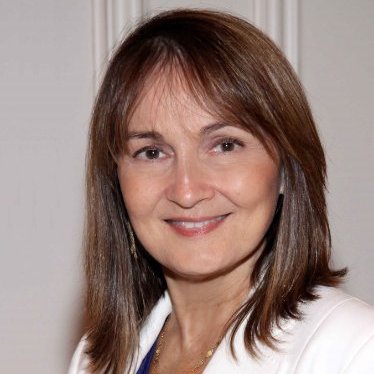A ‘Most Influential’ Atlantan Says She is a Testament to What Immigrants Can Achieve When They Feel Wanted
Date: March 30, 2016
Shortly after Lucia Jennings arrived in Valdosta, Georgia, from Rio de Janeiro to attend nursing school in 1975, someone from the local chamber of commerce knocked on her apartment door with a care package of maps, directories and a guide to the area’s best doctors. “I will never forget that,” says Jennings, now in her mid 60s. “It was such a simple act, and it made me feel so welcomed to the community.” She says the sentiment behind that gesture is a far cry from the hostile public discourse surrounding immigrants today. “Now there’s such a disconnect,” she says. “As we listen to so much noise, we have forgotten how so many people have contributed.”
 Jennings soon married an American citizen and didn’t have to worry about her residency status. Still, she felt like an outsider who had to educate Americans about the Brazilian people and culture. “When I introduced myself, I often felt like people didn’t know that I was from a huge country with a rich culture,” she says. “I wanted them to know there was another Latin America besides Mexico. In response, Jennings created the Brazilian American Society and started organizing a Brazilian Carnival party, along with educational seminars at local schools. She also helped start the Brazilian-American Chamber of Commerce, to “change the perception that Brazil wasn’t just a place to play soccer, but also to do business.” She once even gathered thousands of signatures to convince Delta Airlines to add a Rio de Janeiro route.
Jennings soon married an American citizen and didn’t have to worry about her residency status. Still, she felt like an outsider who had to educate Americans about the Brazilian people and culture. “When I introduced myself, I often felt like people didn’t know that I was from a huge country with a rich culture,” she says. “I wanted them to know there was another Latin America besides Mexico. In response, Jennings created the Brazilian American Society and started organizing a Brazilian Carnival party, along with educational seminars at local schools. She also helped start the Brazilian-American Chamber of Commerce, to “change the perception that Brazil wasn’t just a place to play soccer, but also to do business.” She once even gathered thousands of signatures to convince Delta Airlines to add a Rio de Janeiro route.
We’re turning our back on kids who’ve grown up in this society, and these are people who are contributing.
In 1991, Lucia was hired by a global beverage retailer in Atlanta to assist engineers with the construction of a manufacturing plant in Brazil. She rose through the ranks, becoming global manager for ingredients, all while earning undergraduate and graduate degrees. “I work very hard, and I try to work smart focusing on my own goals,” she says. “I’m tenacious, and I’ve learned how to reinvent myself in the many roles I’ve been given or applied for.” In 2007, Atlanta Magazine named her one of the 55 “Most Influential Foreign-Born Atlantans.”
Jennings would like to see immigration reform that gives undocumented immigrants the opportunity to make social and economic contributions without fear of reprisal. “It’s tough if you don’t have the right papers to be accepted into society,” she says. “We’re turning our back on kids who’ve grown up in this society, and these are people who are contributing. They need to have direction.” She doesn’t agree with current policy that threatens deportation. Rather, the United States needs to embrace the people who are already here and more strictly control the number of future immigrants. “We have to look at this in a holistic way,” she says, but also in a more human way. “We let people into this country. We pay them to work, and then we don’t want them.” Jennings says she is a testament to the power of what one woman can achieve when she feels wanted.
